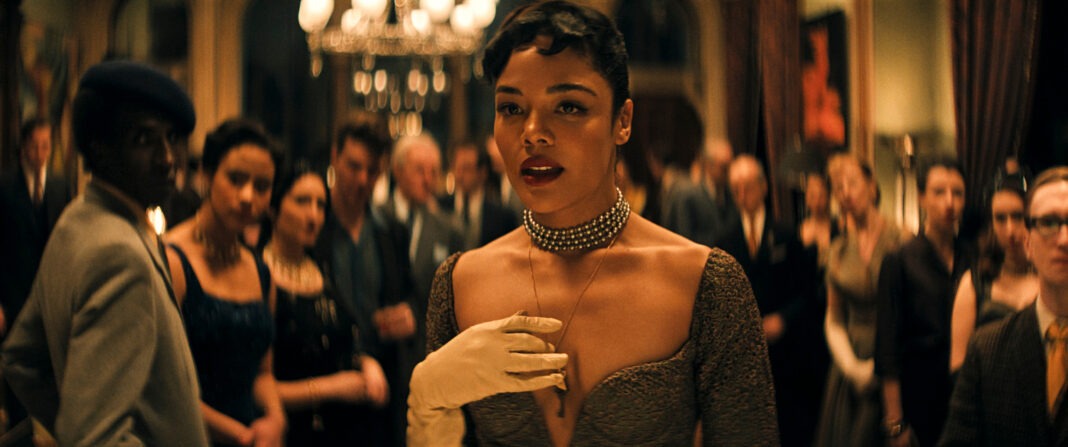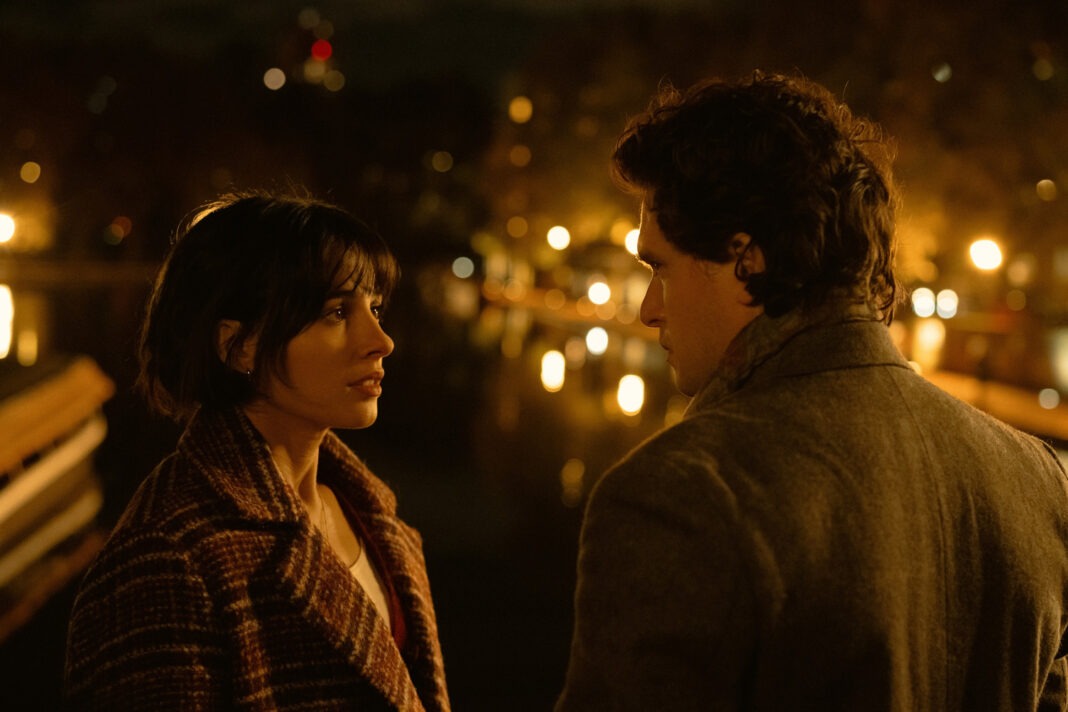No one likes a chaos agent, but they make for fascinating protagonists since they’re doing whatever they can to amuse themselves at everyone else’s expense. Nia DaCosta’s latest film, Hedda, reunites her with her Little Woods star Tessa Thompson in an update of the 1891 play Hedda Gabler by Henrik Ibsen. Set closer to the present but still definitively in another time, this version gives Thompson’s Hedda a formidable playground in which to cause trouble, hosting a lavish party which she wants to be sure to enhance with her own devilish interference in the lives of the people closest to her.
Hedda (Thompson) has invited many people to come for her official introduction into the world as the wife of George (Tom Bateman). He’s not in charge, of course, but he does need her help to make a good impression on his prospective employer, Professor Greenwood (Finbar Lynch). Roland (Nicholas Pinnock) will be in attendance, and he has his own expectations for Hedda given how he’s helped to get her this new and luxurious home in which she resides. The unexpected arrival of Thea (Imogen Poots) comes ahead of her creative collaborator, Eileen (Nina Hoss), who has a very complicated history with Hedda that sets the stage for a tempestuous night.
This film deals simultaneously with many themes, including power dynamics and shame. Eileen’s sexual preferences are well-known among her (almost entirely male) peers, in part because she and Thea, who are in a romantic relationship despite Thea being married, have written a book about sexuality. Hedda appears to have sexual ties with a number of her guests, namely Roland and Eileen, and is hardly shy about acknowledging either of those unions, much to her husband’s chagrin, not necessarily because he’s jealous but because he doesn’t want her to cause him embarrassment.
Hedda is an undeniably meaty role, but Thompson still goes above and beyond with her portrayal. It’s a wonder to see considering the actress is usually known for more even-keeled but similarly compelling performances in projects like Passing, Sylvie’s Love, and Westworld. Here, she’s magnificently and wondrously over-the-top, putting on a period British accent and an immeasurable amount of sass to seduce and destroy, leaving no one unscathed in her path. Even if some of the film’s developments feel like a stretch, Thompson’s performance remains extraordinary from start to finish.
While Poots, Bateman, and Pinnock all turn in solid supporting performances that serve their roles well, the one who comes closest to matching Thompson is Hoss, whose past credits include the Oscar-shortlisted Swiss film My Little Sister and as another partner to a chaos-causing lesbian in Tár. The way in which Eileen also operates as she sees fit without worrying about the collateral damage is different from Hedda but just as interesting, and it’s a marvel to see the two actresses in scenes together. It’s a tiny part, but Kathryn Hunter’s very distinctive voice is always welcome, and she makes the absolute most of a far too brief appearance.
This film is divided into five acts, which aren’t necessarily broken up evenly but serve to mark particular points during this eventful night. The set design and costumes evoke an air of luxury mixed with rebellion, with men dressed in their nicest clothes and some women wearing pants and other outfits surely considered quite progressive at the time. Thompson is magnetic to watch as the film spirals slowly out of control along with Hedda, taking audiences on an immersive journey with quite a few twists and turns that will certainly linger with them even if its conclusion isn’t entirely resounding or definitive.
Movie Rating: 7/10



